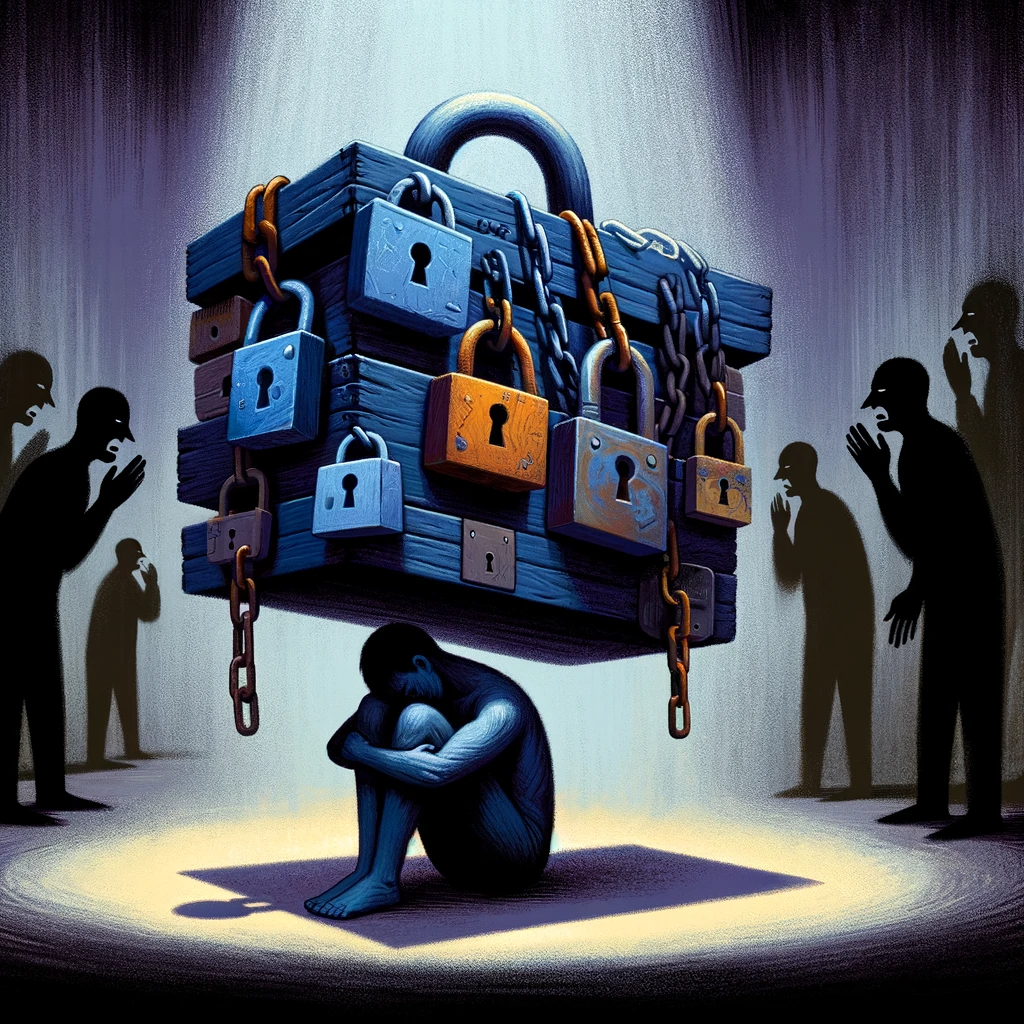The ongoing parade of celebrities and public officials, coupled with our salacious 24/7 news cycle, is a dangerous combination.
So many secrets being exposed begs the question, “ What were they thinking?”
Actually, they probably weren’t thinking. Celebrities often think they’re untouchable – or above it all. Others, particularly politicians, think they’re “Teflon” – that nothing will stick to them.
You’re Only as Sick as Your Secrets
Secrets are a fact of life. Everyone has them. But some secrets carry a hidden price that affects both your psychological and physical health. It all depends on the degree to which the secret controls you.
According to Dr. Gail Saltz, clinical associate professor of psychiatry at Weill-Cornell School of Medicine, certain things we hide are more detrimental than others. For example, there’s shame associated with drug and alcohol abuse, eating disorders and smoking – all of which pose health risks, including heart disease and cancer.
For the Greater Good
That’s not to say absolutely everything needs to be exposed. There are times it would do greater harm to shine the light on every detail. And there’s the rub – and the risk.
Because the subject of secrets involves subjective thinking, everyone will have his or her own take on this. If it hurts others without helping in any way, is it better left unsaid? If it only serves to absolve your conscience and have you get something off your chest, it may not be worth the enduring impact it could have on the rest of your family, friends or co-workers.
“Writing about a secret helps label and organize it,” says social psychologist James Pennebaker. Disclosure can reduce rumination and worry. Putting experiences into words (even if it’s for your eyes only) has a powerful effect.
Fear, Guilt and Courage
However, if you’ve been harboring something inside for a long time and exposing it would be healthy, it may be worth summoning the courage to get it out. The tighter you hold onto a secret, the more you turn that fear and guilt inward. And that can lead to all kinds of consequences.
To Tell or Not to Tell
The question, “to tell or not to tell”, creates anxiety, stress and worry — which can manifest in physical symptoms:
- Headaches
- Back pain
- High blood pressure
- Digestive problems
- Depression
- Weakened immune systems
Revealing your personal secret to someone can be a step in the right direction if you want to rid yourself of carrying this burden alone for the rest of your life. In her book, “Who I’ve Become is NOT Who I AM,” author Sonya Visor lays the groundwork for achieving such a release.
Choose Wisely
The key to successfully freeing yourself lies in the confidant you choose. You want someone you can trust to listen, be discreet and avoid judging you. Someone who can help you process the wrongs a secret may have caused. A tall order, to be sure!
While these qualities certainly exist with a professional counselor, it could also be worthwhile to make the investment of time to identify a confidant in your inner circle – especially for lighter burdens. Better to start with something small to divulge — and work your way up to discover the degree of trust.
A Slippery Slope
Secrets are unspoken words that linger within a relationship. They often start with little things left unsaid. At the outset, this may seem trivial. Left unchecked, though, this can turn into deceit and betrayal.
Secrets play a big role in families. Hiding the existence of a child (as we’ve seen with actor Arnold Schwarzenegger and politician John Edwards), abortions, addictions and abuse are just a few of the secrets that play out in families.
Everyone is affected. Children especially notice something is going on — often blaming themselves or acting out.
Controlling the Agenda
In lots of cases secrets get exposed, anyway. It’s just a matter of whether you’re able to control the timing of the “message” or whether it comes out from another source over which you have no control.
Those involved with secrets may have to face the truth sooner or later – or face it as it’s revealed. Coming clean can leave a relationship stronger or weaker, depending on how it’s handled – and the willingness to take full responsibility and make amends.
Living a Lie
Keeping secrets cuts you off from others. You’re not the person your loved ones think you are, and you know it.
And then there are the times you delude yourself with “the secret behind the secret.” A man who has one affair after another may hide his activities. But what he’s not facing is that his behavior may ultimately destroy his marriage.
Rebuilding Trust
Rebuilding trust takes a long time. It happens in baby steps. Over time, with patience and persistence, a foundation can be rebuilt. It may never be quite the same – or it may even be better.
With addictive behavior, denial can also be at work. It’s important to rebuiod trust within yourself as well. When you tell yourself, “I can quit anytime I want to, “ you’re refusing to acknowledge a destructive habit has taken on a life of its own. Eventually, it could take control of YOU.
Listen to Your Mind and Body
How can you tell if you’re threatening your health by keeping a secret? Dr. Gail Saltz explains in her book, “Anatomy of a Secret Life,” that emotional distress without explanation suggests you’re keeping things from yourself and/or others. Look for these signs:
- Angry outbursts over little things
- Exhaustion for no reason
- Physical ailments with no medical explanation
- Feeling anxious, depressed or sad
These behaviors can tip you off that there’s something you may be ashamed of – or are too upset to admit (even to yourself).
According to “The Science Behind Secrets” in the Association for Psychological Science professional journal, people hiding traumatic secrets showed more incidents of hypertension, influenza and even cancer. Conversely, the blood tests of those who wrote about their secrets showed results of enhanced immune systems. In some cases, T-cell counts of AIDS patients even increased.
Digging Deep
What can you do about it? Self- exploration is the antidote to secrecy – helping you become aware of the feelings and memories that surround your troubling behavior. Understanding events and relationships in your past provide valuable clues.
If you cannot –or will not – confide your secret to a professional or trusted source – there’s another way to “get it out.” Write it on a piece of paper and release its hold on you by burning it. Follow this up by listing what you want to invite into your life in place of the secret.
“Writing about a secret helps label and organize it,” says social psychologist James Pennebaker. Disclosure can reduce rumination and worry. Putting experiences into words — even for our eyes only — has a powerful effect.
Coming Out of Hiding
As author Frank Warren reminds us, “Trade your secrets, and become who you are.” “Wearing a mask is a powerful thing,” concludes Visor. “We’ve all worn a mask at one time or another in our lives. The danger is when YOU can no longer be seen.”


